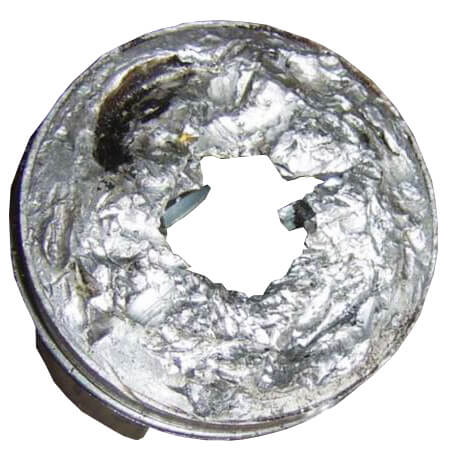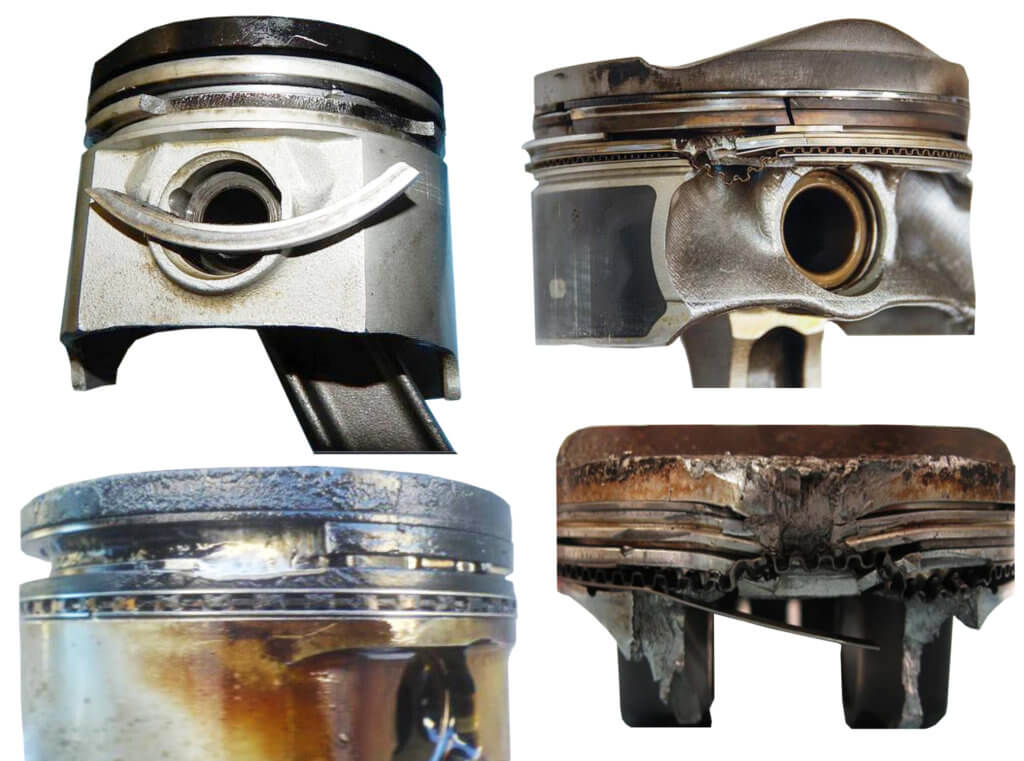Pre-ignition and detonation (knock) — What’s the difference?
There’s a difference between pre-ignition versus detonation (knock)
Many car “experts” use the terms pre-ignition and detonation interchangeably or blame pre-ignition on low octane fuel. Let’s set the record straight; pre-ignition and detonation are not the same, they occur in different phases of the four-stroke process and only one is caused by using low octane fuel.
What is pre-ignition?
Pre-ignition is defined as starting the combustion process BEFORE the spark plug fires. It occurs during the compression stroke. Pre-ignition is caused when a hot object/area in the combustion chamber ignites the air/fuel mixture instead of the spark plug. Glowing carbon buildup, a hot exhaust valve, or a spark plug that’s too hot can cause pre-ignition. Once started by the hot source, the spark is ineffective.
Since combustion begins during the compression stroke before the piston reaches top dead center, the piston continues to compress a rapidly expanding combustion flame that’s exerting downward force on the piston. The opposing forces create noise in the bearing, often referred to as knock or ping, But it’s a mistake to use the terms pre-ignition, detonation and knock interchangeably, because the root causes are different.
What does pre-ignition do to your engine?
Pre-ignition causes super-heated temperatures

Piston damaged caused by the high heat of pre-ignition
inside the combustion chamber along with pounding opposing forces that:
• Burn the center dome of the piston
• Damage rod and crankshaft bearings
Spark plug induced pre-ignition
Pre-ignition can occur if the spark plug’s tip temperature exceeds 1472°F causing the hot ceramic to ignite the air/fuel mixture before the ignition system fires the spark.
How does a spark plug get that hot?
• The wrong (too hot) heat range can cause pre-ignition.
• An improperly torqued (insufficient torque) spark plug can cause pre-ignition due to insufficient head transfer from the spark plug to the cylinder head.
• Glowing carbon deposits on the insulator or ground electrode can also cause pre-ignition.
Glowing carbon deposits cause pre-ignition
• An improper fuel mixture can cause misfires and incomplete combustion, resulting in soot generation and carbon deposits in the cylinder head. As the deposits build, they harden and become a glowing heat source that can cause pre-ignition.
• Poor quality fuel can cause incomplete combustion and carbon deposit formation in the combustion chamber and cylinder head.
• Pre-ignition will dramatically raise the cylinder temperature and pressure, which can melt holes in the pistons and burn valves, etc.
What is detonation and knock?
Unlike pre-ignition that occurs during the compression stroke, detonation occurs at the end of the power stroke. Detonation (knock) occurs when a small portion of the remaining air/fuel mixture spontaneous ignites away from the flame front started by the spark plug. In simplest of terms, detonation and knock occurs when multiple flame fronts collide.
What causes multiple flame fronts?
Here’s the step-by-step:
• The piston rises during the compression stroke causing cylinder pressure and temperature to rise (rapid compression of any gas also causes a rise in the gas’s temperature).
• The spark plug fires and ignites the air/fuel mixture.
• The combustion process begins and expands.
• Combustion expansion causes a higher and faster rise in cylinder heat and pressure. • The additional heat alters the chemistry of the remaining fuel, causing the formation of OH- radicals which auto-ignite.
• The altered fuel becomes explosive, creating a shock front that moves at the speed of sound, colliding with the spark induced flame front.
It’s this collision that causes the knock sound.
What causes detonation?
Detonation when you use low octane fuel in an engine designed for higher octane fuel. A higher octane fuel is more resistant to OH-radical formation and provides a more controlled burn that prevents the formation of multiple flame fronts.
What does detonation do to an engine?
While  tends to melt the center of the piston, detonation damages the edges of the piston rings and lands.
tends to melt the center of the piston, detonation damages the edges of the piston rings and lands.
©, 2021 Rick Muscoplat
Posted on by Rick Muscoplat